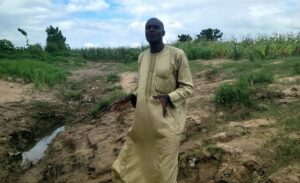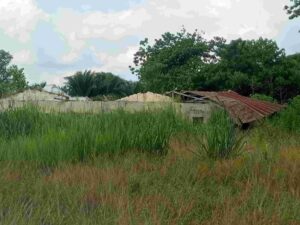The National Assembly 2013 estimated that there were over 20 million people with disabilities (PwD) in Nigeria.
Studies have also shown that PWDs in Nigeria face social exclusion within their communities with a discouraging public attitudes and cultural beliefs.
To address some of these challenges is the presidential assent of the Discrimination against Persons with Disabilities (Prohibition) Bill into law to facilitate a national legal and social framework upon which other interventions are centered.
In Kogi State, Governor Alhaji Yahaya Bello on the 3rd of June 2019 signed the bill to establish the Disability Office, Guarantee and Protect the Rights of Persons Living with Disability into law.
Implementation of these laws both at national and sub-national levels remains to be tested as PwDs are still grappling with issues of discrimination, humiliation, and rejection, especially when it relates to social relationships like marrying able-bodied persons in society.
Bilkisu Yakubu is a federal civil servant living in Kogi State. She is a cripple.
She said: “I was not born a cripple; I lost my legs at age six as a result of polio.
“Love is a beautiful thing that every human wants to experience. While growing up, I fantasized about how I will love the man of my dreams.”
According to her, she has been into several relationships that didn’t go as expected because the men would usually see her as a liability. And, the one relationship that would have ended well for her, the cold hands of death interfered.
Getting married is a beautiful thing; Miss Yakubu hopes to find love someday. “I know I will find love someday. I will wait patiently for the man of my dream.”
Usman John is also living with a disability, but he said love is a social thing that comes with luck, good or bad.
He narrated his marriage tale: “My marriage is blessed with two beautiful daughters, who are always delighted and happy to see me, my wife is my companion. She loves me so much and we have been married for eight years now.
“However, getting to this stage was not easy, there was opposition from my in-laws especially my mother-in-law ranging from the disability, to how I am going to cater to my family.”
“Somehow, when I overcome the challenges coming from the parents of the lady I loved, my community gave me all the necessary support I needed when I was getting married to her.
“All that is history now.
“I am a poor civil servant. God has been helping us survive.”
Hawua Isah, who is visually impaired, and married with two kids has a different story to tell.
According to her, getting pregnant and the process of giving birth was the toughest time of her life because of the barriers she encountered.
“My challenges range from communication problems at the healthcare center to the insensitivity of the healthcare providers, mobility, and unfriendly healthcare infrastructures facilities.
“The nurses were so hostile that after my second baby, I decided not to get pregnant again.”
We need full support care and empathy from everyone around us to make our lives easier, she added.
Ibrahim Musa is also living with a disability, though was not born a cripple.
“I do little work and I repair shoes to fend for myself. I am not thinking about marriage. I doubt if he could ever get married.
“I all have experienced a lot of deceit, unfaithfulness, and ridicule, whenever I approach a lady for a relationship, talk more of marriage,” he said pathetically.
According to him, the lady that later agreed to a relationship was only doing that, out of pity and immediate gains.
“In the end, she left me heartbroken. Since then, I have not attempted to talk to anyone. I am afraid of being rejected if I try again.
“At the moment I want to concentrate on working, earning a living, and improving myself,” he added.
All the aforementioned scenarios in Kogi State demonstrate rights violations in different ways, including opposition by parents against a disabled person to marrying an able-bodied person, poor medical attention at health centers due to stigmatization, and the right to life as human beings.
Sociologists say of all legal frameworks, efforts, and interventions, changing mindsets and public attitudes that have strong underlining superstitious or cultural beliefs against PwDs are key to social inclusion.


